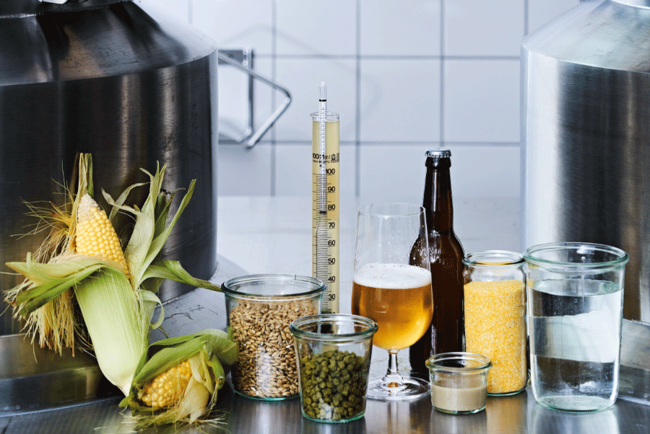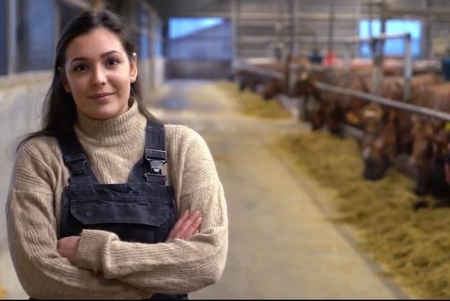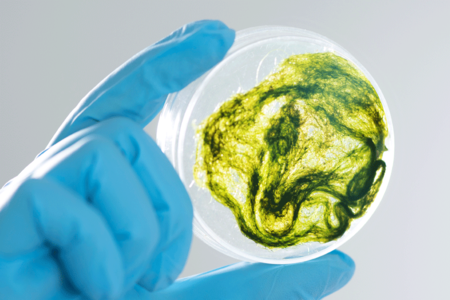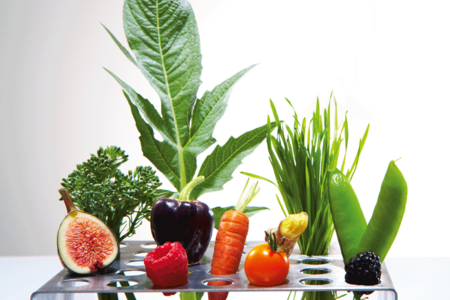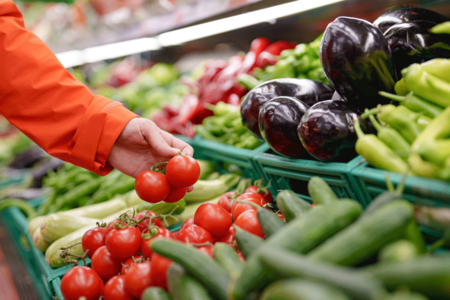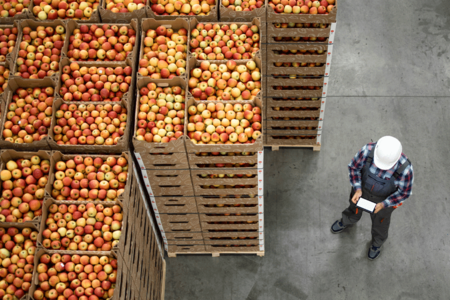About the programme
At the MSc programme in Food Innovation and Health you will be working with the development of healthy, sustainable, and tasty products.
You study food science, food innovation, and product development, within disciplines such as nutrition, Food Design Thinking, consumer science, food chemistry, gastronomy, food sociology and sensory science.
The programme is offered in English.
Considering studying at UCPH this September?
Apply by 15 January if you are an applicant from outside the EU/EEA/Switzerland. Apply by 1 March if you are from the EUAdmission and application
To apply for admission to this master's degree programme, you must have completed a qualifying bachelor’s degree or a similar Danish or international degree programme which is assessed to be relevant. Apply for admission via the application portal.
Below, you can read more about admission requirements and which documents to upload in the application portal.
Academic admission requirements
Here you'll find the different academic requirements depending on which qualifying degree you hold.
With a Bachelor's degree in
- Food Science (fødevarer og ernæring) with the Food, Health and Nutrition subject-specific course package (sundhed og ernæring) from University of Copenhagen
you are granted legal right of admission and guaranteed a place on the Master’s programme in Food Innovation and Health if you apply in time to begin within 3 years of the completion of your Bachelor’s degree.
You meet all academic requirements if you hold one of the degrees listed below. Learn about when and how to apply. Note, however, that you still need to document that you meet the programme's language requirements.
- Food Science (fødevarer og ernæring) with the Food, Health and Nutrition subject-specific course package (sundhed og ernæring) from University of Copenhagen (note, that if you apply in time to begin within 3 years of the completion of your Bachelor’s degree, you have legal right of admission to the Master's programme)
If you have a Bachelor’s degree other than those listed above, you must submit additional documentation along with your application so we can evaluate whether or not you meet the admission requirements. Learn about when and how to apply.
If you have a Bachelor’s degree, Professional Bachelor's degree or equivalent from Danish or international universities you are qualified for admission if your programme includes the following:
- A minimum of 120 ECTS within the area of natural science including all the following:
- Biochemistry (including laboratory work) equivalent in content to the SCIENCE course LKEB10077U - Biokemi 1, 7.5 ECTS credits
- Statistics equivalent in content to the SCIENCE course LMAB10069 - Statistisk dataanalyse 1, 7.5 ECTS credits
We may also admit applicants who, after an individual academic assessment, are deemed to possess educational qualifications equivalent to those required above.
Qualifying degree and other courses/projects
When we assess whether you meet the admission requirements for the Master's degree program, Danish legislation only allows us to assess your Bachelor's degree. Consequently, you cannot study supplementary courses between Bachelor's and Master's degree programs in order to meet the admission requirements.
If you have passed courses/projects before you complete the qualifying Bachelor's degree, these can be included in the assessment, even though they are not part of the Bachelor's degree program.
- It applies to courses/projects you have taken as single subjects and courses/projects you have taken as part of another study program.
- A maximum of 30 ECTS credits of these courses/projects may be included.
Language requirements
You are required to document that you fulfil the language requirement English B, unless you have a legal right of admission to the programme you are applying for.
Please note that you must have the documentation ready by the application deadline.
Application deadlines
Study start in September
1 March at 23:59
Application deadline for Danish applicants and applicants from within the EU, EEA and Switzerland.
Open for applications from 16 January. You will receive a reply by 10 June.
15 January at 23:59
Application deadline for applicants from outside the EU, EEA and Switzerland.
Open for applications from 15 November. You will receive a reply by 1 May.
How to apply
Choose the category below that fits you and read more about how to apply for admission. You will also find information about application deadlines and documentation on the websites.
Citizen in Denmark, EU EEA or Switzerland
Bachelor's degree with legal right of admission
Bachelor’s degree from Denmark
International bachelor’s degree
Citizen in a country outside EU, EEA or Switzerland
Bachelor’s degree from Denmark
International bachelor’s degree
Prioritisation of applicants
If the number of qualified applicants to the programme exceeds the number of places available, applicants will be prioritised according to the following criteria:
- Total number of ECTS credits in courses within the area of natural science
Limitation on second degrees
If you have already completed a Master's degree, please check out the rules concerning a second degree.
| Admission statistics Food Innovation and Health 2025 | |
|---|---|
| Admitted (of which have start in February) | 23 (0) |
| Admission distribution (legal right/other) | 17% / 83% |
| Applicants | 135 |
| Age average | 26 |
| Nationality (dk/international) | 35% / 65% |
Programme structure
The programme is international. You will learn of our food culture and food preferences, of sensory quality and aesthetics, of the composition of food and drinks, and of the theories of composing food and meals.
You solve scientific as well as everyday problems related to changing our dietary behaviour, and the nutritional problems from the evidence-based health recommendations.
With a starting point in a plant-based diet, it is possible to work with sustainability. An innovative collaboration with external parties is also possible; former students have developed meatballs with seaweed, tempeh with legumes, snack bars with insects, sausages with plant proteins, or made products based on food waste such as crisps from brewers' spent grain.
During the programme, you can choose optional courses and thereby form your education according to your personal interests and career plans.
You finish your education with a thesis, where you will be working on an academic topic by your choice. You can either write an experimental thesis or a theoretical analysis.
Teaching
We use different forms of teaching and vary between lectures, problem-based learning, as well as both theoretical and practical exercises. You will be working both independently and in project groups.
You will have the opportunity to participate in the ‘Gastronomic Playground’ (links to a Danish Facebook-site), a student-based association, which, among other things, arranges events at a high gastronomic level.
The group has access to a large gastronomic laboratory (an experimental kitchen), where students can meet with student chefs, professional chefs, and fellow students from other study programmes. Here, you can experiment with food and techniques – and thus contribute to substantiating, subverting, and taunting our notions of food.
Do a Project in Practice or Study Abroad
You can use some of your elective courses to do a Project in Practice in collaboration with a company or an organisation. You can also choose to study abroad as part of your programme. Read more here:
Programme Overview
The programme can be structured in two ways, depending on whether you write a thesis worth 30 or 45 ECTS:
Course Table, Thesis 30 ECTS
Compulsory courses: 60 ECTS
Elective courses: 30 ECTS
Master's thesis: 30 ECTS
One block each year equals nine weeks of study and 15 ECTS. The table is primarily for guidance and may be subject to revision.
Year 2
| Block 1 | Block 2 | Block 3 | Block 4 |
|---|---|---|---|
| Thematic Course in Food Innovation and Health | Elective | Thesis | |
| Elective | |||
Course Table, Thesis 45 ECTS
Compulsory courses: 60 ECTS
Elective courses: 15 ECTS
Master's thesis: 45 ECTS
One block each year equals nine weeks of study and 15 ECTS. The table is primarily for guidance and may be subject to revision.
Year 2
| Block 1 | Block 2 | Block 3 | Block 4 |
|---|---|---|---|
| Thematic Course in Food Innovation and Health | Thesis | ||
Programme Curriculum
If you are more interested in the academic content, regulations, and examination requirements, you should consult the curriculum, which serves as the legal foundation for the programme.
There is both a curriculum specific to each degree programme and a general curriculum that applies across the faculty.
Please note that curricula are often revised annually. Any new versions will be published no later than during the spring semester.
Video: Emily and Minaka talk about the study programme in Food Innovation and Health
Career opportunities
Upon completion of the master’s programme, you will obtain the title Master of Science in Food Innovation and Health.
Challenges such as a high carbon footprint, obesity, and bad nutrition are priorities high on the international agenda. At the same time, our consummation of food has changed. Even before we enter the kitchen, an increasing number of our food has been prepared or partly prepared. Convenience products are often not a healthy and sustainable choice, and we should demand the development of healthier and more sustainable products.
The Food Innovation and Health programme is a scientific and practice-based programme with an innovative approach that challenges the traditional concepts of gastronomy, and what it is possible to eat.
You will be taught how to combine knowledge about nutrition, sensory quality, innovation and entrepreneurship with food chemistry, culinary techniques, product development, sociology, and consumer science. In this way, you will be able to navigate in the cross field between palatability, health, and sustainability with a view to develop new successful products and consumer experiences.
Competence Description
The unique combination of knowledge, methodologies, techniques, and competencies means that as an MSc in Food Innovation and Health you will be able to, among other things:
- Work interdisciplinary and in groups to further innovate and use creativity when developing tasty and nutritionally sound and sustainable products.
- Understand the importance of cognitive, social and cultural factors that affect our dietary habits.
- Work scientifically with food (evaluate the nutritional, chemical and sensory quality).
- Handling consumers’ demands needs and preferences in connection with food and eating.
- Performing advisory and managerial tasks in relation to food and health for private companies and public institutions.
- Understand how consumer science can be used to support marketing strategies in the food industry.
- Teaching and conducting research within food,health and sustainability.
Employment
With a degree in Food Innovation and Health, you can use your competencies in food science, nutrition, innovation, and entrepreneurship to obtain exciting jobs in the food industry or within the public food area, for instance as a product developer or adviser.
You can also work with communication, health promotion, management, a green transition with sustainable food products, or research within the food and health sector. Furthermore, you can teach, serve as a consultant, or establish your own company.
Student life
High quality education in English, a flexible study structure, excellent facilities, an international study environment, attractive and green campus areas, and the opportunity to experience life in Copenhagen, the cool capital of Denmark. These are some of the qualities about studying at Faculty of Science (SCIENCE) at University of Copenhagen that you can expect.
Throughout the year, various social activities are arranged for all SCIENCE students and for international students specifically. These activities include:
- Introduction Days for new students
- A welcome programme for international students
- International dinners, courses, and lectures
- Sports activities such as fun runs or bicycle races
- Career workshops
Students live in residence halls outside campus or share a flat in the Copenhagen area. You will find that the relatively small size of Copenhagen makes it easy to get around, even by bike.
Where Will I be Studying?
The Food Innovation and Health programme is primarily based at Frederiksberg Campus.
The Frederiksberg Campus hosts part of the Faculty of Science and the veterinary area of Faculty of Health and Medical Sciences. It is located a few kilometres west of the city centre in beautiful green surroundings, and Frederiksberg is a popular residential area. The Gardens, which are part of the Frederiksberg Campus, are popular with both students and locals. In the summer months, you can drop by Café Væksthuset, which is located in an old greenhouse, for a cup of freshly brewed coffee and a delicious sandwich.
At campus, you can join student clubs and societies of a more or less academic nature. Regardless of whether you are interested in choral singing, sports, the theatre or a special academic subject, there is a club for you.
Here you will find some useful links and videos about student life and housing in Copenhagen, and the welcome programme for international students at Faculty of Science.
- Information about living in Copenhagen – plus practical information on housing, civil registration number, residence permit and more
- General information on student life and studying at University of Copenhagen
- Housing Foundation Copenhagen is an independent entity which assists international students and researchers at University of Copenhagen in finding accommodation. Visit Housing Foundation Copenhagen here
Video: Study Science at University of Copenhagen
Meet Elizabeth and Alex who study at the University of Copenhagen in Denmark. See what it is like to live and study in Denmark.
Video: SCIENCE Welcome Programme
The SCIENCE Welcome Programme is a great way for international students to be introduced to the Faculty of Science at the University of Copenhagen.
Testimonials
Read interviews with students and graduates from the Master of Science programme (MSc) in Food Innovation and Health.
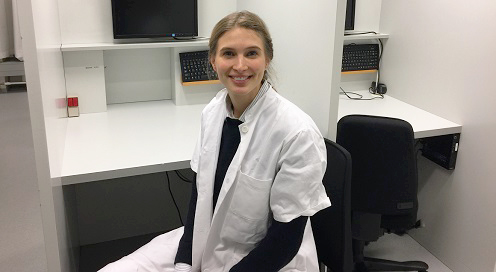
Why were you originally interested in working with food and people’s relationship to it?
I think my interest and my curiosity were aroused from childhood, due to my mother and her love of cooking. She’s always been creative in the kitchen. She was particularly good at explaining why she combined different ingredients as she did. I learned very early on that the function of food is not just to fill us up – it is also about experiences and nutrition.
How did you get interested in studying Food Innovation and Health?
I did a professional bachelor degree in nutrition and health. I particularly found the teaching on nutrition for different groups – children, adults, the elderly, athletes, etc. – interesting. And not least the complexity of people’s relationship to food in Europe – and in the industrialised nations in general, where there is a high level of prosperity. I was interested in learning the theories behind the relationship between food and people.
My bachelor’s programme had a strong focus on food and small-scale meals, e.g. at home or in institutions. The master’s programme in Food Innovation and Health broadens this to food production and the food industry. I was also interested in better understanding food chemistry and design thinking in relation to product development and production.
How did you find doing the master’s programme?
I feel that the programme built solidly on top of my bachelor’s programme. I gained a deeper understanding of the absorption of nutrients, bioactive components – and food chemistry in general.
And the theory and practical exercises regarding the sensory experience of food products were very interesting. The role our senses play in relation to how we perceive food, and how we interact with products when we taste and evaluate them.
We did a course on entrepreneurship and innovation, and I also did an elective course in project management, which I was personally very happy with – because organisation and project management are extremely important in my field, and because I secretly dream of being an entrepreneur.
I feel that the programme equips you well for becoming self-employed, and I think it’s a degree programme that opens up a lot of paths. I gained a lot of experience, and the programme confirmed that consumer behaviour and sensometrics are very exciting areas.
You completed your studies in 2016 and began work as a research assistant within design and consumer behaviour at the Department of Food Science at the University of Copenhagen. What does the job involve?
The job has involved writing scientific articles and holding presentations in various forums, based on my master’s thesis, for example.
I also helped conduct the first Virtual Reality study at the department. I played a key role throughout the process – from designing the study, recruitment, data collection and data entry to analyses and writing an article.
We wanted to examine whether we can use Virtual Reality to create context when we do sensory measurements and consumer surveys. Virtual Reality is interesting because we can simulate a realistic situation in our laboratory.
This gives us full control over the situation we create, unlike when we conduct a consumer test in a supermarket where there are a lot of disruptions. We also avoid having to haul all our equipment, samples etc. out of the building, which is not only expensive, but also requires a lot of planning.
Do you use your degree programme in your daily work?
Yes, every day. I help my colleagues. We use each other as sounding boards, and always think very carefully about the way we design our studies or surveys.
I’ve been involved in project applications, and have a pretty good idea of how to work as a researcher.
When you have done a degree programme as broad as Food Innovation and Health, you also have the satisfaction of being able to use it in many different ways. That’s great.
I could do a PhD if the opportunity arises, be self-employed, develop a product or a service, do research or work in the food industry. The programme provides insight into food production, global challenges in relation to food production and consumer behaviour. As graduates, we are therefore able to see the big picture, and devise strategies – for companies and for the future of the food industry in general.
Ninett has worked as a market manager at Chr. Hansen (now Novonesis) since 2018.
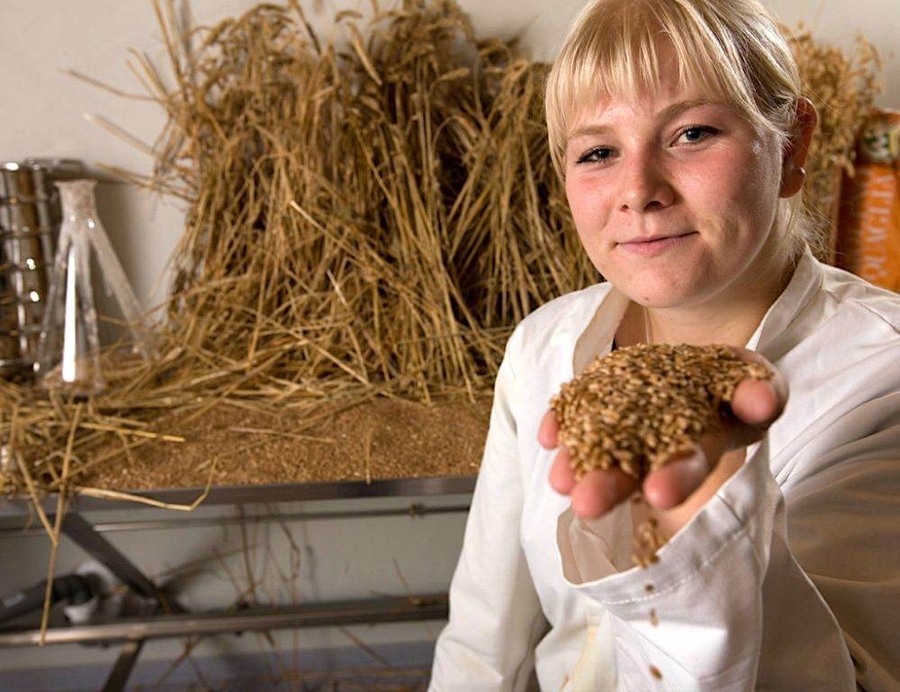
The Food Innovation and Health programme is a scientific study programme with a sociological perspective. As a BSc in Food Science, Signe has always had an interest in food and the broad perspective on food she could get from the Food Innovation and Health programme was exactly what she was looking for.
Some of the things Signe has enjoyed studying is how physics and chemistry can influence e.g. the way food tastes. Another interesting element of the programme is the insight you get in the complexity of food and the many different factors which influence our diet. But the sensory science part of the programme has been particularly interesting to Signe:
”Initially, I did not focus much on sensory science, but now I find it extremely interesting to study the many factors which come into play when we eat, such as our senses, our digestion, our memories related to food and eating, stimuli and much more”.
Collaboration With the Food Industry
Project and group work is an integrated part of the Food Innovation and Health programme which means that you spend a lot of time with your fellow students which develops your collaboration and presentation skills and prepares students for their future career:
“We learn to collaborate with many different players in the food industry in which there has not been much contact between the consumers, the industry and the technological and gastronomical experts so far. We become the mediating link”, Signe says.
Multiple Career Opportunities
As a graduate in Food Innovation and Health you have multiple career opportunities, but Signe would like to work in the food industry. Her ambition is to get the industry to make better products based on the best ingredients nature can provide for the benefit of the consumer and the reputation of the industry itself.
Signe graduated as an MSc in Food Innovation and Health and is now working as a Process Supporter at Novo Nordisk.
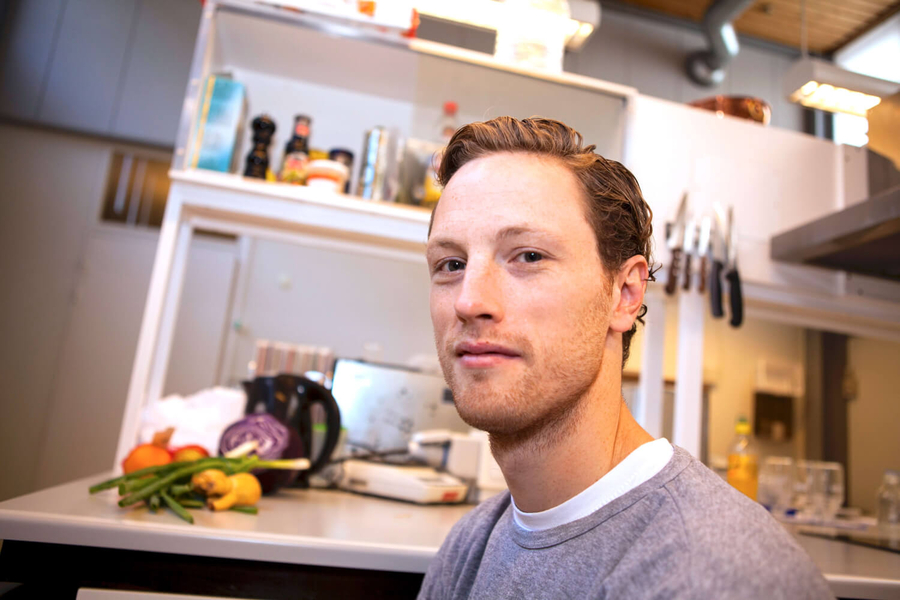
It’s all about the science behind cooking - what happens when you cook cabbage for example – all those processes. I found it very interesting to have a nice balance of science and practical hands-on work.
Which job opportunities does this give you?
In the industry you could work for big companies like Kraft or Nestlé and develop the next chocolate bar for example. Or convenience food. Or you could work as the link between the chefs and the industry. You can be the guy who understands both sides. How they work and which techniques they use.
What’s the balance between theoretical classes and practical work in the lab?
In the beginning it’s quite theoretical. It starts with nutrition physiology, but I think there is a nice balance, because as soon as you go to sensory science for example, you have to work with the practical aspects of food, you taste a lot, and you learn the methods of how you evaluate and how to use the statistical programmes to visualize what you taste.
And then finally, in ‘Innovation and Entrepreneurship’, the main class, you are in the kitchen almost every day cooking and evaluating. For instance, you are in the red cabbage group one day, and you have to make a soup, pickles, salad – maybe nine different ways to prepare this specific food, which you would never do at home – to make you understand how different techniques influence the final product.
You are writing your thesis right now. What is your subject?
It’s about food psychology. How the plate sizes influence your choice of food. The hypothesis is that if you are hungry and you for instance have to choose food from a menu card with photos, you will go for a small plate rather than for a big plate.
When you compare the pictures, the food looks bigger on a small plate because of the outer circle of the plate. Even if it is exactly the same amount of food on the two plates. It’s called the Delbeouf illusion. It will be interesting to see if this also works with real food, because it hasn’t really been shown.
Do you miss Germany?
Not really. It’s not that far away. Actually I’m going to Germany next week. And I’m going to Cologne in October. Me and my friend Alex have formed a company, and we have qualified for the finals in the Ecotrophelia competition. The Ecotrophelia is a prize in food innovation and sustainability. And the finals are in Cologne, and we are going to compete with 20 other nations.
What is your project?
We are combining slow food and fast food – cooking after the slow food philosophy, and then we put the food into a glass jar with vacuum and an airtight sealing with a rubber band. It’s a whole dish – you can reheat it in the microwave oven.
So you have a high-quality convenience food, which is cooked by real chefs and by hand – that’s the whole concept. And then we have the packaging which we put a refund on, so the people come back to the shop and bring back the packaging, so there is no packaging waste.
Tell me about your company …
It’s called Coquo, which means ‘I cook’ in Latin. The university supported us with a 35,000 DKK funding, which was a good help in the beginning, so we could buy all the glass jars and do the catering.
We started one year ago – actually in the context of a course on the master programme where you have to develop a product. This French guy, Alex, had this idea about putting food in jars. I joined his group and the two of us decided to develop the product and make a company out of it.
Since this interview, Julius has worked as a Copy Writer at various ad agencies. He is now a Food Writer at the German food magazine “Der Feinschmecker”.
Contact student guidance
Questions about study choice and admission
Our student guidance are ready to assist you with answers to your questions about:
- application procedure and the digital application portal
- admission- and language requirements
- documentation
- study life
- career opportunities
- study choice or doubts
Did you not find what you were looking for?
You can find answers to questions most often asked by potential students in the FAQ. Read the FAQ
Questions about the digital application-portal?
Do you have questions about digital application? Check our user guide to the application portal.
In case of technical problems, please contact the IT-support by
- Mail: it-service@adm.ku.dk // Tel: +45 35 32 32 32
Location
- Frederiksberg Campus, Thorvaldsensvej 40, DK-1871 Frederiksberg.
